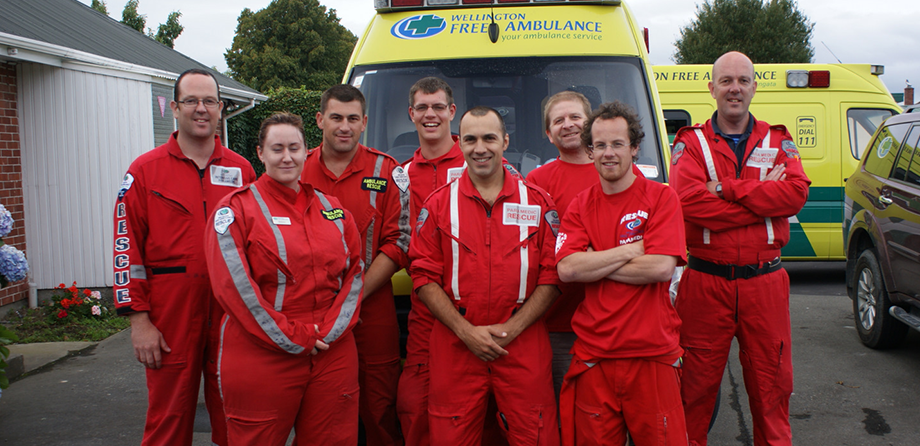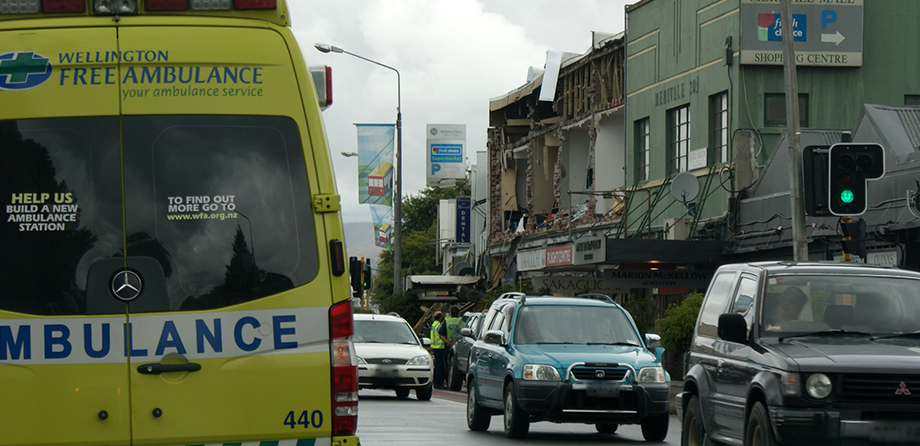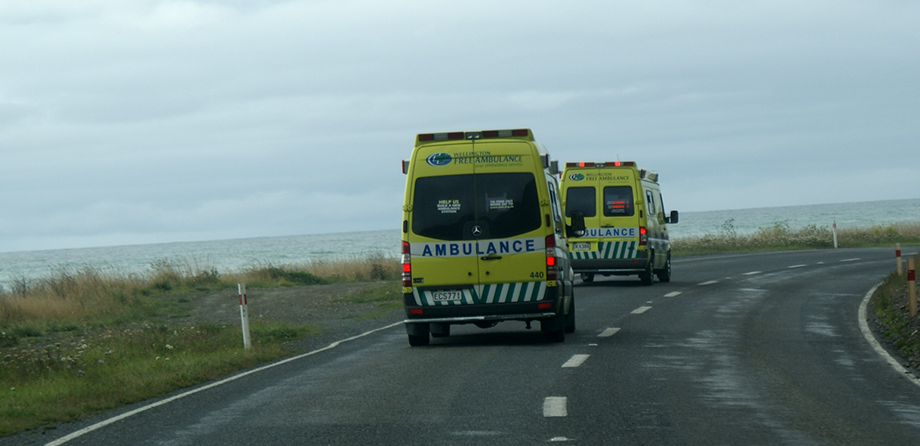About Us
We are the only emergency ambulance service in greater Wellington and the Wairarapa, and the only ones in the country who are free.
We are the only emergency ambulance service in greater Wellington and the Wairarapa, and the only ones in the country who are free.
What we doOur news
Showing our support for Christchurch
Showing our support for Christchurch
 22 February 2021
22 February 2021
At 12:51pm on 22 February 2011, a 6.3 magnitude earthquake struck Christchurch, causing wide-spread damage across the city and claiming the lives of 185 people.

Despite being more than 400 kilometres away, Wellington Free Ambulance was there to help when Christchurch needed us most, responding with a paramedic team of 35 over a week. One of those who went was Intensive Care Paramedic, Derek.
Derek explains how apprehensive he was during the flight down – “It was hard to know what we were going to see and what Christchurch was going to be like.”
When the team landed at Hagley Park they were taken to Latimer Square where St John Ambulance had set up a triage area; they were then crewed with a local ambulance officer and started responding to calls.
That night consisted of a number of jobs, navigating around blocked roads due to large cracks and liquefaction – as well as having to deal with the constant aftershocks.

Derek and his colleague were then sent to the PGC building for the rest of the night to assist with treatment and transport of patients that were getting extricated by search and rescue crews. Other Wellington Free Ambulance staff continued to respond to calls around Christchurch, with some even assisting at the CTV building.
After getting some rest, the next day saw Derek and two others help with setting up a welfare centre at Cowles Stadium – “we had no experience in this nor knew what to expect. However, most people were very supportive and amazed that we had come from Wellington to help them; but it was clear everyone handled the stress and upheaval differently.”
Derek was there from Tuesday afternoon on the day of the earthquake until Saturday.
He says on returning home, the first couple of days felt weird – mainly because there weren’t any aftershocks.
“One thing that has stuck with me was that most of the Christchurch city is essentially flat, and whilst the CBD and eastern suburbs were damaged from the quake, it was still possible to bypass these areas to get around the city.
“However if you compare this to Wellington, you can’t help but imagine how so many areas could be cut off if there is a large earthquake. This would cause large difficulties in getting staff and equipment into these areas and patients back out and then to hospital.”

“I think it is important that people make sure they are prepared to be 'on their own' for 72 hours as Civil Defence suggest. This includes having a supply of emergency water and food, keeping their important documents in a safe place that would be easy to get to in the event of needing to evacuate, and ensuring they have enough medications just in case they’re unable to get a new prescription.”
The 22 February 2011 earthquake changed the lives of thousands and today we stand with our Christchurch whānau as we remember those we’ve lost and how we stood together in time of trial.